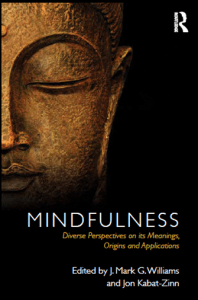
Dr. Ramala Sarma is Assistant Professor at the Department of Philosophy of Nowgong College, Nogaon.
Society, from its beginnings to today, has witnessed tremendous changes. History shows us its transformations into different forms: from mere nomadic herders to a well-organized community, kingdom, empire, and nation-state. Soaring human needs and desires have replaced huts with skyscrapers, the joint family with a nuclear one, the barter system by the stock market, physical talk by text messages and so on. In this dynamism, the thing that seems constant is the human relationship. We still have affection, love, care, sympathy for our procreator, preceptor, brother, sister, friend and fellow-being. No innovation can drag us away from these relationships. Changes have been brought about to make improvements upon the current order, but of course not at the cost of the emotions that one has for one’s fellow beings. For we cannot separate human beings from their emotions. Human being is the centre around which everything is orbiting. Thus the ethical teaching of Buddhism stressed mainly on the emancipation of human folk from suffering through the transformation of their behaviour.
The Noble Eightfold Path of Buddhism consists of eight steps meant for the empowerment of people socially and spiritually. They are right view, right intention, right speech, right action, right livelihood, right effort, right mindfulness and right concentration. Out of these eight steps, right speech, right action and right livelihood guide our moral code of conduct directly, though all of the steps are interrelated. In course of our way of life, the first thing that one requires to approach others is speech. For it is the vehicle to carry messages of thoughts to and fro. Speech reflects the character of the speaker and it is the words of the speaker that attract or distract the listener. While place priority on non-violence, which means non-injury of any kind to all living beings, Buddhism holds that this is not possible unless the aspirant controls his speech as well as action. Right speech requires an individual to keep himself aloof from using rude words, backbiting, lying and frivolous talk. It is said that words are more harmful than swords. Proper words in the proper place are always welcomed by all. Be it social life, political life or corporate life, speech is the chief means of expression of intentions, commitments and transactions. Even Jainism is very particular about the control of the speech, for it holds that hurting through speech is as much evil as is done through physical assault.
However, mere speech without its actualization in action is a futile attempt to convince others. Relations between individuals and that of the individual and society largely depend upon the co-ordination between speech and action of individuals. Fellow-feeling of one towards the others is expressed to some extent through the speech and entirely through fostering right action. Fellow-feeling leads to healthy relationships among the members of the society and that in turn contributes to social well-being. However, right speech and right action are not possible unless the individual cultivates right view and right intention. Right view simply means to see and to understand things as they really are and right intention refers to the kind of mental energy that controls our actions. Right action again leads to right livelihood. Right livelihood requires an individual to practise right conduct in every sphere of life: domestic, social, national and international. The Buddha enjoins the building of pure character as the most essential prerequisite of an individual. As our character is reflected in our thought, speech and deed, right view, right intention, right speech and right action come in close association with right livelihood. Again, to form a pure character, right effort , right mindfulness, and right concentration are the mandates.These three steps help in cultivating awareness and high positive mental states such as loving kindness and compassion.
The Noble Eightfold Path may be broadly divided into threefold paths under the banners of wisdom (right view and right intention), ethical conduct (right speech , right action and right livelihood) and meditation ( right effort , right mindfulness, and right concentration). Wisdom and meditation are concerned with understanding things correctly and attaining positive mental states on the part of an individual. Positive mental states increase the power of acceptance and assimilation which in turn helps the individual to establish empathize with others. Here ethical conduct plays a significant role which is inevitably bound up with how we relate to others. We live in the midst of our works and our works in the midst of those of others. What we do and the way we do it, particularly when it occupies a large proportion of our lives, affects not only us, but also others with whom our works concern. The direction and speed of our life are determined by our action. Even the slightest deviation from the track may leave us perplexed and our lives overturned. Thus the Noble Eightfold Path leaves its mark on every step of our life still today though it was formulated a long time ago.













